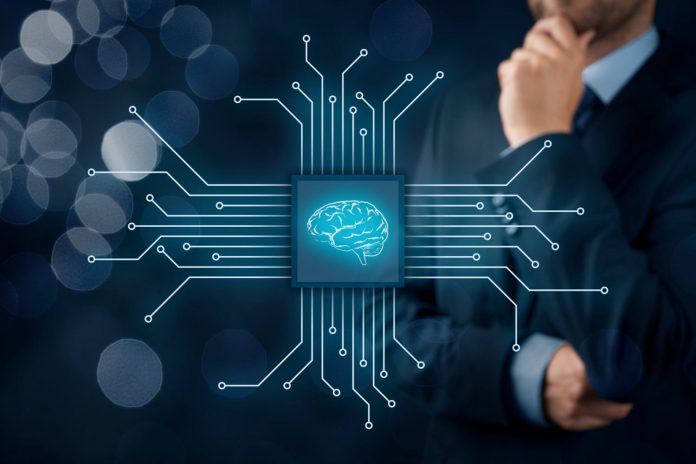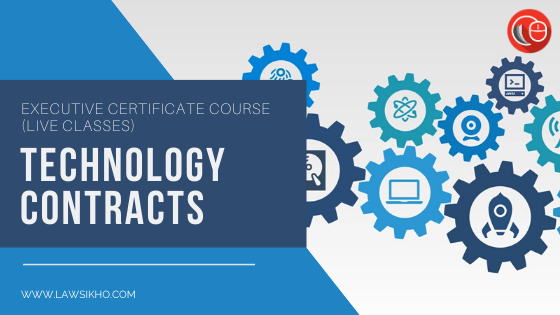This article is written by Aditi Lahiri, pursuing a Diploma in Business Laws for In House Counsels from LawSikho.
Table of Contents
Introduction
Auditors in today’s age and time use various accounting software for ease of getting their work done but technologies involving blockchain, AI etc. are still highly uncommon at the present. However, looking into the future, the automation of every process is the obvious direction that we are approaching. Hence, using innovation and technology to reduce the processing time of data as well as eliminate the chances of human error, fraud etc. is the ultimate goal. Identifying this possibility, the Big four accounting firms have already begun heavily investing in the R&D department with an aim to deploy artificial intelligence and other forms of automated technology in audits and other accounting operations.
Further, due to the recent challenges posed by the pandemic, the idea of a virtual remote audit has been pushed to the forefront. The sheer impossibility of physical checks being performed has significantly accelerated the deployment of innovative technologies in the audit processes including monitoring transactional records, document collection, inventory observation, etc. However, whether such use of technology can completely eliminate chances of fraud or human error or replace the professional auditors entirely at some point is still under speculation.
What is an audit?
In India, under Section 44AB of the Income Tax Act of 1961, businesses with annual total sales, turnover or receipts in excess of Rs.1 crore and professionals (doctors, engineers, lawyers etc.) with annual receipts over Rs.50 lakh are compulsorily required to undergo an annual tax audit. Such audits are conducted by a Chartered Accountant or a CA firm to ensure that the entity in question is disclosing the correct financial information for taxation.
Further, all companies (both public and private) as well as certain LLPs are required to undergo an annual statutory audit, which is governed under the Companies (Audit and Auditors) Rules, 2014 and the Companies Act, 2013. This Audit performed by an independent CA or a CA firm helps the shareholders of the company rely on the credibility and authenticity of the financial statements of the Company as well as helping in matters of Income Tax.
Hence, an audit is the evaluation of a business including its financial records by an independent auditor, which helps the business in establishing its credibility, fair practices, compliance to the law, the competence of the management as well as identifying weak spots and risks for better future operations. Regular audit reports also help in securing loans from banks as well as winning the trust of new investors for the business.
Challenges under COVID-19
The recent events that have turned the entire world upside down have left no profession or industry untouched, including the accounting firms. The COVID-19 crisis has made it extremely difficult for auditors to do any of the physical checks involved in the process, including visiting the office, collecting documents, observing inventory management, etc. In the absence of these checks, the businesses are extremely vulnerable to negligence, frauds and other malpractices. Therefore, the audit processes couldn’t be stagnated and the accountancy world was pushed towards quickly adopting virtual remote means of performing all the required steps. While such digital transformation was already en route for the big accounting firms, the smaller firms had to abruptly take a dive without any time for deliberation or preparation. However, in terms of quality of the audit reports, the impact has been extremely positive as the use of advanced technology has significantly improved the speed and accuracy of the processed results. Hence, while physical on-site visits are sure to resume in the future once the situation allows it, a lot of these changes in terms of use of technology will be permanent and will only advance from hereon.
Various modes that can be used – Cloud computing, blockchain, artificial intelligence, robotics
Technology is transforming the entire process of auditing. For example, while the procedure of procuring the required financial data and supporting documents was delayed by factors like the client’s resistance, cloud-based data-extraction systems has given the auditors direct remote access and hence extracting all the financial data directly without any need for the client’s cooperation has become extremely simple. Big audit firms have already launched smart audit platforms like KMPG Clara shifting the audit workspace to cloud-based sources while adopting AI applications.
Simply speaking, artificial intelligence is the capacity of a machine to adapt its operations by learning from the data it has been fed and its own decisions in the past. The main features of AI are that it can intake huge amounts of data impossible for a human mind, it can learn from the vast amounts of data fed to it and then can unbiasedly adapt and apply the learned reasoning towards detecting and solving problems.
While traditionally, during audits, only random samples of the transaction records were evaluated, now using advanced data analytics, artificial intelligence, and automation, the entire data can be reviewed in real time. Hence, the quality of the report is significantly elevated as the margin of error due to the chances of missing the problematic transactions in the chosen sample is entirely eliminated.
The usage of AI will also make it possible to detect patterns that people cannot pick up on, either because the pattern is completely new or because the pattern only shows itself after processing thousands of transactions. Risk assessment tools that are currently being developed by the big accounting firms involve the use of such machine learning and artificial intelligence so that eventually, after the system has been fed with large data sets, the tool can learn on its own and start flagging risky transactions and additional anomalies by itself.
This will all be done in real-time which will stop the problem from arising instead of detecting it after it has happened. Hence the accounting of the future of will be proactive instead of reactive, reducing frauds significantly.
Blockchain is a technology that was originally designed to transact digital currency in a decentralised, verifiable and permanent way. This technology can be used to make accounting systems that would record all real-time transactions in such a way that the records are permanent, transparent and decentralised. Originally, the financial records were stored on a centralised system under the sole control of the main party.
However, through blockchain, these records would be made public to all the parties so as to give all the involved parties a chance to access the transactions and the records would hence be indestructible and incorruptible as everyone would have the same records. This system makes it impossible for any one party to manipulate the financial records due to the complete transparency throughout. Technology like the Deloitte COINIA is an excellent example of application of all the above principles of AI and blockchain by a Big Four firm.
Other audit tasks such as inventory and stock verification may be conducted through applications of robotics like industrial drones fitted with First-Person View cameras that would provide live video footage to the auditors who are unable to visit the site. While such video graphic means of audit might be novel and controversial, the current difficult times demand adjustment, flexibility and innovation in the methods. The fascinating point to be noted is that while flashy technology like drones is still extremely uncommon, the use of blockchain, AI and bots have become relatively common practice at least in the big audit firms and are now being actively invested in to be developed further.
Will auditors become replaceable?
In light of these new possibilities of automation, a question frequently deliberated on is if these technologies have the potential to eliminate the need for audit professionals in the future. However, experts are of the opinion that while these technologies will reduce the manpower required, they will only be the assistants of the professionals and not their replacements. The value of human judgement cannot anytime soon be replaced by machines. The audit process is much more complicated than the crunching of numbers and includes a vast amount of analysis and interpretation which requires significant knowledge of business.
The audit processes will hence still require skilled professionals, well versed in the rules, standards, regulations etc. who can oversee the working of the software and detect any errors that cannot be detected by the machines, for example- an error in classification of the data fed to the software. The advance in technology will complete the mundane tasks in the audit process, giving the audit professional a chance to focus on the judgement-oriented elements of the job. If anything, with the support of advanced technology, the quality of audits produced by the professionals will far improve and hence, the inherent value of the profession will be elevated.
However, the job profile of auditors is bound to change. With the technology processing the data in real time, the goal will have to shift to preventing problems instead of detecting problems. The auditors will be expected to evolve and upskill themselves and be trained appropriately in data science and analytics, so as to have the technical ability to utilise the tools to their fullest capacity.
Conclusion
With the data being processed in real time instead of at regular intervals and elimination of human error, the advanced technology is bound to reduce cases of fraud and malpractices through a pre-emptive approach. The COVID-19 crisis has pushed the whole world towards a new digitised era and the auditing field is no exception. The new approaches and practices are going to revolutionise the accounting and auditing profession in addition to adding great value to the businesses. In a short amount of time, what seemed to be a dot on the horizon has arrived right within the reach of the world and there is no choice but to adapt and upskill as there is no turning back now.
References
- https://ukdiss.com/examples/artificial-intelligence-blockchain-technology-auditing.php
- https://home.kpmg/ca/en/home/insights/2020/10/how-the-pandemic-is-accelerating-the-future-of-audit.html
- https://www2.deloitte.com/us/en/pages/audit/articles/impact-of-blockchain-in-accounting.html
- https://economictimes.indiatimes.com/industry/services/consultancy-/-audit/drones-blockchain-bots-artificial-intelligencethe-new-auditors-on-the-block/articleshow/77364115.cms?from=mdr
Students of Lawsikho courses regularly produce writing assignments and work on practical exercises as a part of their coursework and develop themselves in real-life practical skill.
LawSikho has created a telegram group for exchanging legal knowledge, referrals and various opportunities. You can click on this link and join:
 Serato DJ Crack 2025Serato DJ PRO Crack
Serato DJ Crack 2025Serato DJ PRO Crack











 Allow notifications
Allow notifications


